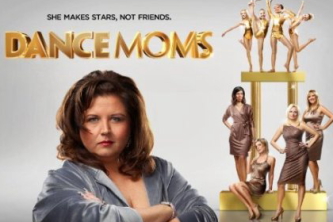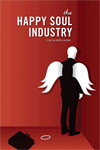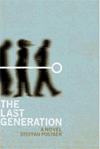Welcome to Armageddon
September 25, 2020

“I’m going to tell you a true story, okay?”
Callie is looking at her phone but you know she is listening. You are driving her to rehearsal. She has a big part in Les Miserables. She plays the grown-up version of Cosette. Though you saw the movie you don’t really remember the story. Victor Hugo is not your thing. Being a musical, Callie has been practicing her song for weeks. You’ve heard her belting out lyrics from her room, in the shower, on the trampoline in the backyard, which she pretended was a stage. You couldn’t tell if she was good or not but her enthusiasm was infectious. It gladdened you to see her so passionate, so happy. Many members from your family are coming in to see her perform. Hundreds of other people as well. The tickets cost money and this is a real show. Up until yesterday Callie had been totally psyched.
One of her “friends” had disrespected her online, insulting her singing skills or some other shit. Usually a brick, Callie had been wounded. Your wife told you as much. Now you felt it in your daughter’s sullen demeanor.
So you tell her a story…
“Before you were born,” you begin. “Back when I was coming up at my agency in Chicago, we were preparing for this huge presentation. It was my idea we’d be showing. I had written all the copy. And I had the game to go with it. I knew what I was going to say and how I was going to say it. I had my shit down.”
Callie looks up when you curse. Good. You had her attention. No easy feat with a teenager.
“Anyway, the night before I rehearsed my bit in front of the team. I get done. My colleagues are pleased. One even clapped. Then the head account person –the guy who deals with the client- he proceeds to crap all over my work. He’s not happy with the creative, he says. It’s shit. I’m dumbfounded. Where did this come from? He’d seen it before.”
Traffic on the 101 is heavy but it allows you to turn and look at your daughter. “The guy says to me, in front of everybody, if you present that work tomorrow it will be Armageddon.”
“The end of the world?” Callie asks. “What did you do?” Callie’s eyes are one of her most beautiful features, big and blue, and they are wide open staring at you.
You laugh. “I told him I would make changes. That I’d do what he wanted.”
“That sucks,” your daughter says.
“It would have sucked,” you say. “Had I listened to him. The next day I delivered my presentation just as I’d planned it. My work. My way. And I fucking killed it. When I was done the client cheered.”
“Really?”
“Damn straight,” you say. “But the story’s not over. After the meeting ends, everybody’s shaking hands, patting each other on the back. I walk over to the account guy who’d dissed my work. He thinks I’m going to shake his hand. I look him right in the eyes, and I say, ‘Welcome to Armageddon, asshole.’”
Almost missing your exit, you swiftly change lanes. So caught up are you in the tale.
“Wow, that’s a great story, dad,” Callie says. “It’s all true?”
“Every bit, sweetheart.”
At the red light, you look at Callie full on. The middle child, she’s the sassy one. The daughter that gives your wife the most trouble. You choose your words carefully. “If people disrespect you or your work that does not mean you have to listen to them. Just be…”
The light turns green and you move the car forward. The word comes to you.
“Devastating.”
AA teaches that redemption comes from being of service. Letting go the bondage of self. This is true. Yet redemption also comes by shattering the chains from the bondage of others. You want your daughter to believe in herself, even when others don’t.
In the parking lot, Callie thanks you for driving her to practice. But you sense something deeper. You can see it in her eyes.
The fierceness has returned.
You watch Callie as she marches toward the theater, joining her other cast members. When she was a toddler, she had refused to walk upright, instead choosing to tread on her knees. The pediatrician had concerns. Your wife was worried. It’s not normal, they said. But you knew her day would come. And in your mind so did she.
The world is a stage and you just gave an important player some badass direction.
Make Damn Sure You Know The Horse Is Going To Drink The Water.
October 24, 2019

Regarding the creation of advertising, I’m very good at three things: copywriting, creating big ideas and presenting them. Even my detractors, bless them all, would grant me that. If pressed they might also tell you I’m efficient and have never missed a deadline; that I curate my work and put it into cohesive and winning presentations, always with options.
This is what I do well.
I’ve been told I have a bunker mentality. I believe in healthy competition. Best idea wins. Sometimes you have to break a few eggs to get there. Which is fine. As long as the client gets a world class omelet. That’s been my experience.
After presenting work, the best outcome is when your audience (peers or clients) argues about which campaign they like best. If the work is fantastic then who cares what they choose? I believe in options. And so does every client. You never want a meeting when the outcome is ‘we need another meeting.’ Make damn sure you know the horse will drink the water. Some creative directors think good work is its own reward. That has not been my experience.
So, if you want to win a pitch, save a client, or simply demand fantastic work please hit me up. I’m available for consultation, freelance or long term projects. I’m fluent in new media and know how to reconcile data. Adept at even the trickiest verticals i.e. enterprise software, healthcare, life sciences, etc. Flexible pay and logistics. References upon request.
May we have a conversation?

Left side of my reef, featuring the big Sailfin tang I call “Moose”
I maintain a 180-gallon reef aquarium in my home. Try to anyway. The coral reef is the most complex, delicate and beautiful ecosystem in the world. Lighting. Filtration. Water parameters. Flow. Everything has to be calibrated and monitored in order to even passably mimic a real coral reef. One or two miscalculations and your reef crashes. Suffice it to say, this is not your father’s guppy tank.
Still, or maybe because of the challenges, I am an addicted reefer. I can easily spend two hours in twenty-four with my hands in the tank and even more online doing research. Nothing tweaks my nerd DNA more than scouring websites, gaping at corals, bidding on equipment, or contributing to a forum. Reef porn is real.
An ad agency has a lot in common with my reef. Though it can be more polluted (joke), the hallways and cubes of an agency ecosystem are populated by equally diverse and complicated organisms. Some species, like the showy creative, can in fact be very sensitive. While others, the account director for example, can be very aggressive. Given the two must live together the experience can be challenging. Certain aggressive species torment smaller creatures, nipping at their work, crushing them. Biting criticism takes its toll. The wounded creative hides in his cave, camouflaged by earphones, avoiding the persistent predator. If the biggest fish in the tank is a bully, everyone suffers. When the tank becomes mired in territorial disputes, the whole thing crashes. Sound familiar?
It doesn’t have to.
Last night I observed my cleaner shrimp nibbling parasites off a troubled yellow tang and I realized that there is wonder here. When all these myriad creatures work together, giving and taking in harmony, the results are truly breathtaking. The solitary superstar flashes brilliance. A school of darting Anthias shows the awesome power of collaboration. If the tank masters accept the occasional skirmish, providing nourishment to all, then the ecosystem will flourish.
I am now available for writing projects and/or a creative leadership role. Please contact me directly @ Steffan1@rcn.com or via Linkedin. I look forward to engaging with your ecosystem!

My last post was about “responsible passion” as creative philosophy. I wrote that whatever the philosophy a creative professional has, it must strike a balance between passion and responsibility. We are craftsmen as well as salesmen. To do the job right, “you’ve got to do both.”
Now I’m going to talk about staying creatively fit and remaining relevant, which is a critical part of any creative philosophy.
I believe in what I like to call the “creative athlete.” He or she is creatively fit, physically and mentally. He relentlessly works at his craft. She takes classes and workshops. They are students of the game.

They are also switch hitters, in that he or she thinks about their agency from every skill position and can play there if necessary. A good copywriter is a planner. A good art director knows how to interface with clients. All are good salesman, when called upon.
The creative professional may prefer working alone or with a partner, but he or she is also a competent and enthusiastic team player.
When I was coming up at Leo Burnett, I totally related to the founder’s screed regarding the “lonely man” — a romantic figure who wrote into the wee hours. As I grew older, I had to adapt my game to accommodate the many others who ultimately affect a project.
When creative athletes become creative directors, they remain active in their core skill. They get better at the other ones. They remain teachable and open-minded.
I firmly believe in the player-coach. If I were to stop writing I would lose the ability to judge writing. I would also begin the not-very-slow fade into irrelevance.

Remaining relevant is, in itself, a creative philosophy.
Honestly, I don’t know how a creative director can do the job well if he or she isn’t banging away on every other brief at the agency. I suppose some do but that’s not how I roll.
A writer writes. Right?
Being fit creatively is both mental and physical. I think a good salesperson looks good doing it. They are pumped to be working one of the coolest jobs in the world. I’m not talking about jackets and skirts. Lord knows I don’t adhere to any dress code. Just don’t skulk.
Finally, I believe in the basic tenants of a liberal arts education; in that a good creative professional is knowledgeable about our culture in all its forms. He or she is a consumer of it as well as a creator.
That means we must have a working knowledge of TV shows we don’t like and music we don’t listen to. For example, I loathe The Bachelor, but I’ve seen it. I cannot stand gossip magazines, but I read my wife’s copies. And so on.
We go to movies. We make videos. We Tweet. We read.

The creative professional who hates pop culture and avoids much of it cannot possibly serve our craft. Losing interest is tantamount to giving up and, as with any good athlete, giving up is unacceptable.
Know your crap.
I hope these last two posts have been helpful. While I am hardly the consummate teacher I have done this job for over 20 years. I know a thing or ten; many of them learned the hard way.
Whether or not one agrees with me on all matters isn’t critical. Your creative philosophy can and should vary. Just as long as you have one and that you are open to changing it.
Author’s Note: A version of this story was published last week on Reel Chicago




 The Happy Soul Industry
The Happy Soul Industry The Last Generation
The Last Generation